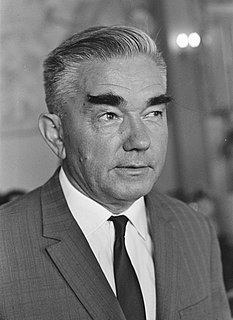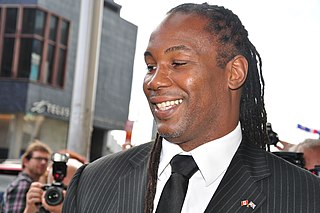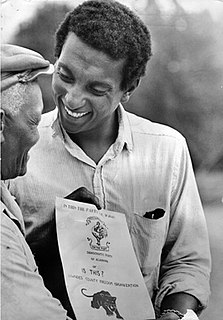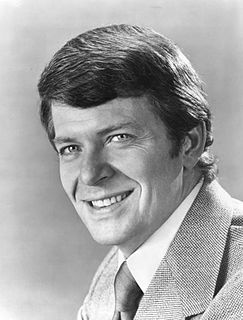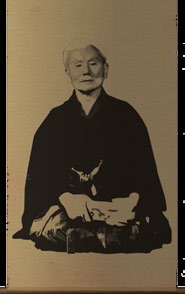A Quote by Alexander Kotov
You must not let your opponent know how you feel.
Related Quotes
Boxing and chess are similar. It?s about the choice of means. Sometimes I need a pawn, a bishop or a knight to defeat my opponent. It?s about finding the best way. A good boxer has to be variable. He doesn?t just need to know how to punch. He must also know how to protect himself, how to defend, how to avoid the opponent?s punches. Only a complete fighter can become champion.
When you go out on the court whether it be for the championship or just a scrimmage, have confidence that your abilities and what you've learned in your drills are better than your opponent's. This does not mean you should disregard your opponent. Before taking the court for any game, you should do a lot of thinking about what you have to do to beat your opponent and what he must or can do to beat you.
Fear comes from uncertainty; we can eliminate the fear within us when we know ourselves better. As the great Sun Tzu said: “When you know yourself and your opponent, you will win every time. When you know yourself but not your opponent, you will win one and lose one. However, when you do not know yourself or your opponent, you will be imperiled every time.
Knowing your opponent is a crucial part of emulating and defeating that opponent. But scouting is only the first step. Too many leaders spend countless hours studying an opponent's every move in the search for an edge. The Great Teams understand not only how to scout but also how to exploit the weaknesses of a competitor. These teams analyze every perspective and option and position themselves to take full advantage of any knowledge gained about an opponent.
The deeper reality is that I’m not sure if what I do is real. I usually believe that I’m certain about how I feel, but that seems naive. How do we know how we feel?…There is almost certainly a constructed schism between (a) how I feel, and (b) how I think I feel. There’s probably a third level, too—how I want to think I feel.
